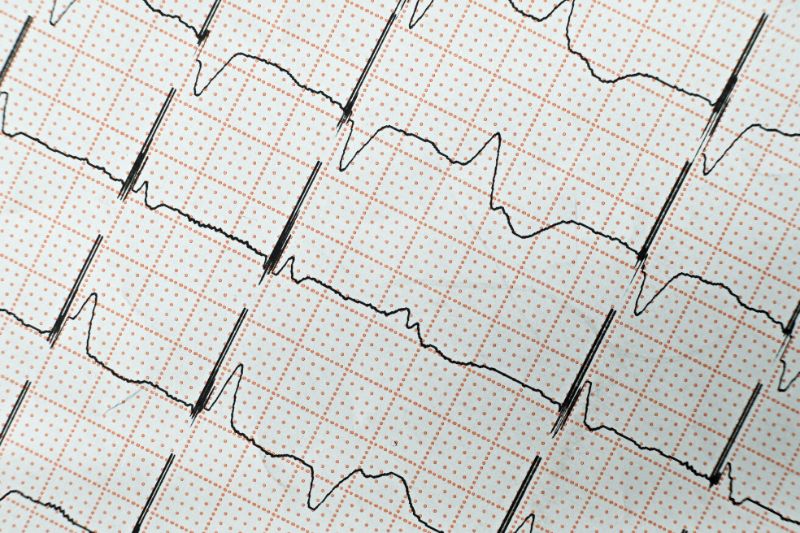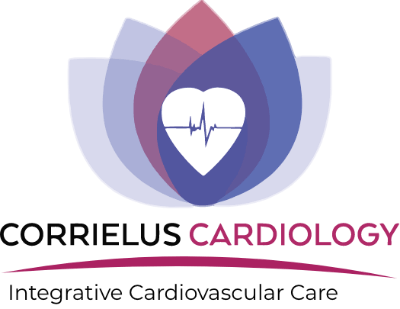An arrhythmia is a broad term that indicates an abnormal heart rhythm. Arrhythmias can occur in the sinus node, the atria, or the atrioventricular node. They may be categorized as too fast (bradycardia), too slow (tachycardia), or irregular.
In any case, an arrhythmia can disrupt the heart’s normal contractions and may put the body’s vital organs at risk. While not all arrhythmias will cause harm and require treatment, an irregular heart rate should never be ignored.
With all the cardiovascular conditions treated at Corrielus Cardiology, we are equipped to diagnose the cause and severity of your cardiac arrhythmia and determine the best treatment plan that will protect your health.
Arrhythmias are a result of an abnormal electrical signal that tells the heart when to pump blood and maintain a steady heartbeat. When the heart’s electrical system is malfunctioning, it can result in not enough blood filling the lower ventricles or not enough blood pumping out to the rest of the body.
Whether you are suffering from a heartbeat that is too fast, too slow or irregular, you may experience the following symptoms of arrhythmia:
- Palpitations (fluttering sensation)
- Weakness
- Fatigue
- Low blood pressure
- Dizziness
- Fainting
- Heart failure
- Collapse and cardiac arrest
Since the symptoms of arrhythmias can mimic other conditions, it is critical that you let a qualified provider give you an accurate diagnosis. At Corrielus Cardiology, we have a skilled cardiovascular specialist who uses the most proven testing equipment available to evaluate your heart symptoms.
Atrial fibrillation, also called AFib or AF, is the most commonly seen type of heart arrhythmia. Atrial fibrillation is the presence of an irregular heartbeat that occurs when the atria of the heart project up to 300-600 beats per minute.
The atria is known as the “pacemaker” of the entire heart, as it signals the lower ventricles to beat and pump blood to the rest of the body. If the atria beats too fast, the ventricles may not be able to keep up, which produces an irregular heartbeat or abnormal arrhythmia.
The most serious side effect of atrial fibrillation is stroke, which can occur when the abnormal heart rate causes blood to pool and form a clot. This clot can then travel from the heart to the brain and produce a stroke.
At Corrielus Cardiology, we realize the severity of atrial fibrillation. Our Philadelphia practice is led by a skilled cardiologist who specializes in non-invasive cardiovascular care. He brings extensive knowledge and experience when diagnosing and treating conditions of the heart.
We can detect the presence of atrial fibrillation using EKG, echocardiogram, and Holter monitors.
It is not uncommon for patients with atrial fibrillation to have no symptoms at all. However, a rapid heart rate, irregular pulse, fatigue, and shortness of breath can occur.
Atrial fibrillation can develop in those who have a history of heart problems, such as heart attack, heart valve disease, inflamed heart muscle, or previous heart surgery. However, irregular heart rhythms can also be a result of a congenital defect and are commonly associated with hypertension, diabetes, and lung disease.
While gender and age can play a role in determining your risk for atrial fibrillation, lifestyle factors can also increase your likelihood of the condition.
At Corrielus Cardiology, we treat abnormal heart rates based on the type of arrhythmia you have and the severity of your symptoms.
Irregular heartbeats may be treated with antiarrhythmic medications, blood thinners, or aspirin. However, effective treatment of atrial fibrillation begins with determining the root cause and often includes proper management of atrial fibrillation risk factors.
At Corrielus Cardiology, we help patients understand the importance of managing the distinctive risk factors for irregular heartbeat. Therefore, we will also consider and address any underlying medical conditions that may be contributing to your irregular heart rate.
Our cardiovascular care is focused on integrative medicine and collaborative care. Dr. Corrielus may recommend the following as treatment options for you:
- Reducing high blood pressure
- Controlling cholesterol levels
- Losing excess weight
- Eating a heart-healthy diet
- Avoiding tobacco smoke or stimulant drug use
- Participate in regular physical activity
At Corrielus Cardiology, we treat patients with different types of arrhythmias, including atrial fibrillation. Dr. Corrielus is known for his excellence in non-invasive treatment options, including lifestyle changes, to better manage any underlying medical conditions causing your abnormal heart rate.
Our integrated approach to cardiovascular health prioritizes your overall well-being and quality of life.
To schedule your cardiology consultation, call Corrielus Cardiology at 215-383-5900 or book an appointment online.



